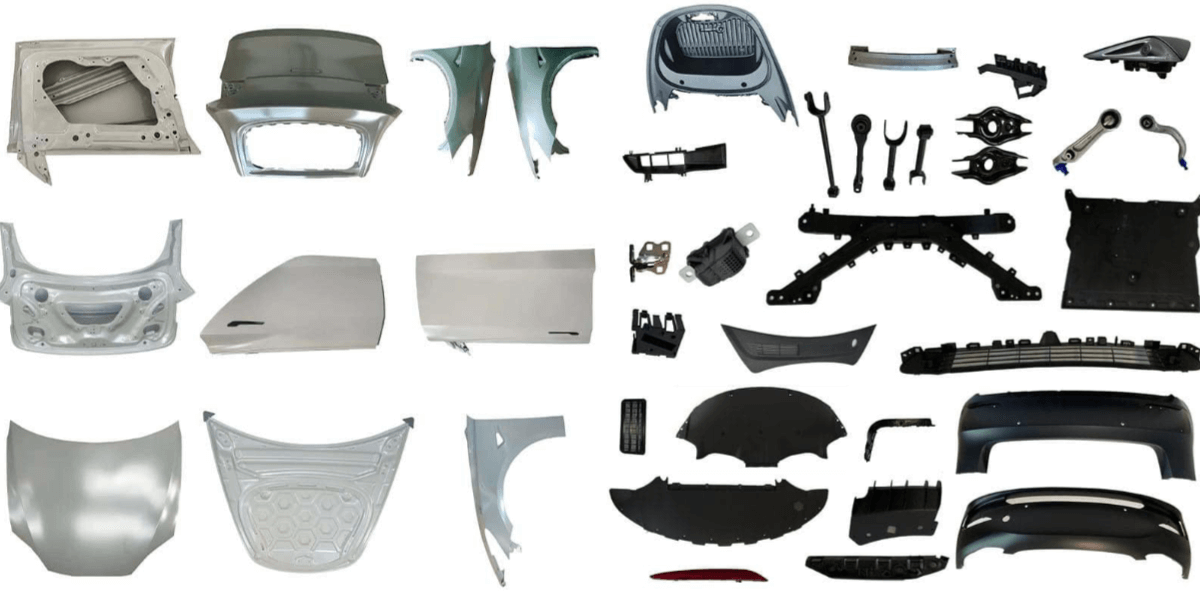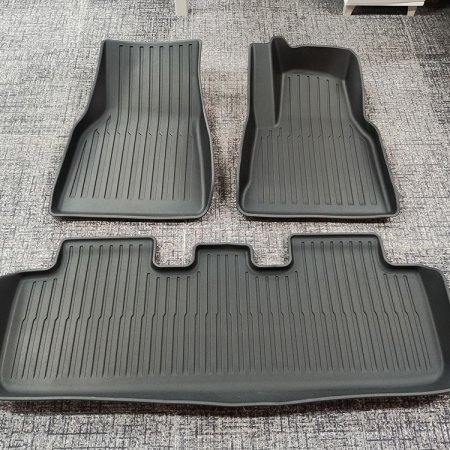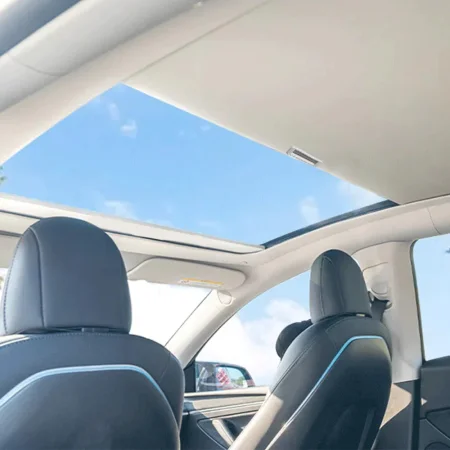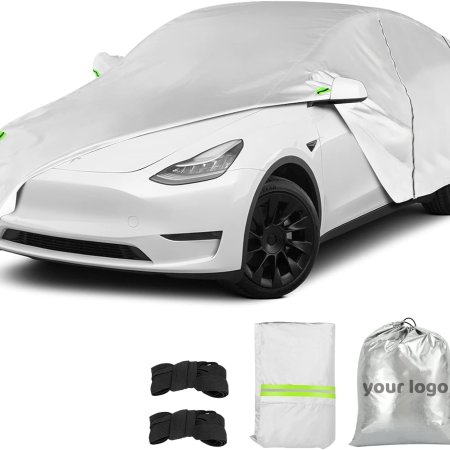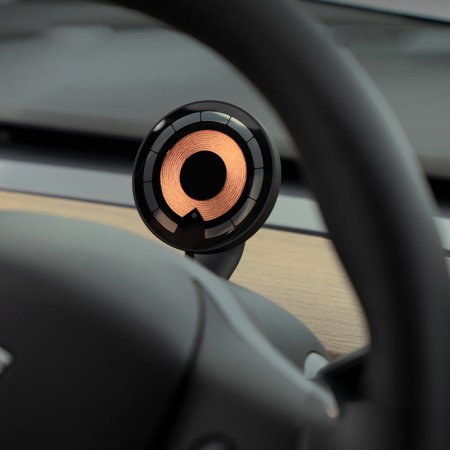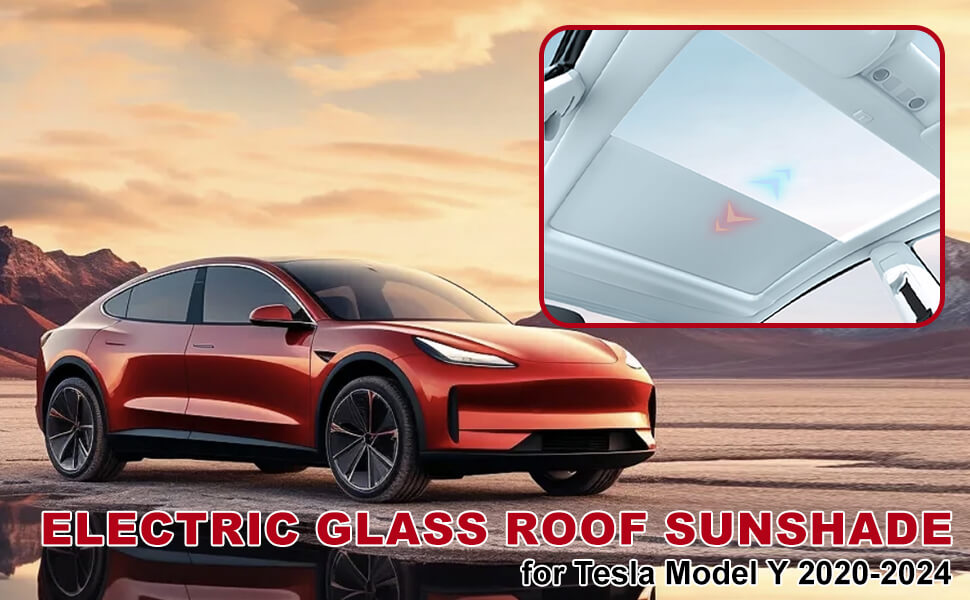Types of Electric Car Parts You Can Buy from Suppliers
As electric vehicles (EVs) continue to grow in popularity, the need for specialized parts to maintain and repair them has surged. Unlike traditional vehicles, EVs require different types of components, often requiring specialized suppliers and manufacturers. In this section, we’ll dive into the primary types of electric car parts that you can source from reliable suppliers, from critical motor components to advanced battery systems and everything in between.
EV Motor Parts: Powering Your Electric Car
The electric motor is the heart of any electric vehicle, converting electrical energy from the battery into mechanical power to drive the wheels. As such, it’s essential to understand the different motor components that can be replaced or upgraded as part of regular EV maintenance.
- Types of Motors: There are various types of electric motors used in EVs, such as induction motors, permanent magnet motors, and switched reluctance motors. Each type offers different efficiencies and performance characteristics.
- Key Motor Components:
- Stators and Rotors: The stator is the stationary part of the motor, while the rotor is the rotating part. These components work together to produce motion.
- Inverters: Inverters convert the DC (direct current) electricity from the battery to the AC (alternating current) needed to power the motor.
- Motor Controllers: These manage the power output from the battery to the motor, controlling speed and torque.
Battery Components: The Lifeblood of Your EV
The battery system in an electric car is arguably the most crucial component. Without it, the vehicle wouldn’t be able to function. As battery technology continues to improve, EV owners and suppliers need to understand the types of battery parts available for replacement and repair.
- Lithium-Ion Batteries: The most common battery technology used in EVs today. They are lightweight, efficient, and have a relatively long lifespan.
- Battery Management Systems (BMS): This system monitors the health of the battery, ensuring it operates within safe parameters.
- Charging Ports: These allow the vehicle to connect to charging stations and can vary by manufacturer (e.g., Tesla, CCS, CHAdeMO).
Charging Station Parts: Powering Up Your EV
As more people make the transition to electric vehicles, the need for accessible and reliable charging infrastructure grows. Whether you’re installing a home charging station or using public chargers, it’s important to understand the different components involved in the charging process.
- Charging Cables: Essential for connecting the car to the charging station. These vary in terms of amperage and connector type (e.g., Type 1, Type 2).
- Charging Stations: Wall-mounted or portable charging units that convert AC power into DC power, feeding it into the vehicle’s battery.
- DC Fast Chargers: For rapid charging, these units deliver direct current to the battery and are typically used for public charging stations.
Body Parts & Interior Components: Enhancing the Look and Feel of Your EV
While the primary function of an electric car is to transport you from point A to point B, the aesthetic and comfort features are just as important. EV manufacturers and suppliers offer a range of body and interior parts designed specifically for electric cars.
- Body Panels: Many EV manufacturers use lightweight materials such as aluminum or composite panels to reduce weight and improve energy efficiency.
- Seats and Upholstery: With the rise of sustainability, some EV brands offer eco-friendly materials, such as vegan leather or recycled fabrics, in their interiors.
- Infotainment Systems: These include advanced touchscreens, navigation systems, and integration with smartphones and voice assistants.
Other Essential Parts: Sensors, Cooling Systems, and ECUs
Besides the main components like motors and batteries, electric cars are equipped with other sophisticated systems that require careful sourcing from specialized suppliers. These components ensure the smooth operation and safety of the vehicle.
- Sensors: EVs use a variety of sensors for everything from collision avoidance to battery temperature regulation. Common sensors include ultrasonic, radar, and camera systems.
- Cooling Systems: EVs require efficient cooling systems to regulate the temperature of critical components like the motor and battery, preventing overheating and ensuring optimal performance.
- Electronic Control Units (ECUs): These small computers manage the car’s electronics, including motor controls, braking systems, and vehicle stability. They are essential for ensuring the vehicle runs smoothly.
Top Electric Car Parts Suppliers You Should Know About
As the electric vehicle (EV) market expands, the demand for reliable and high-quality electric car parts is increasing. Whether you’re an EV manufacturer, repair shop, or individual EV owner, sourcing parts from trustworthy suppliers is crucial to ensuring the performance and safety of your vehicle. In this section, we’ll introduce some of the top electric car parts suppliers, highlighting their strengths and areas of expertise.
Bosch – A Leading Supplier for Electric Powertrain Components
Bosch, a global leader in automotive technology, is known for providing innovative and high-quality parts for electric vehicles. With a long history in the automotive industry, Bosch offers a wide range of components designed for both the manufacturing and repair of EVs.
- Key EV Parts:
- Electric Motors: Bosch offers high-performance electric motors used in various EV applications, including passenger cars, commercial vehicles, and industrial electric machines.
- Battery Management Systems (BMS): Their BMS solutions are designed to monitor and manage the charging and discharging of lithium-ion batteries, ensuring optimal performance and longevity.
- Inverters and Power Electronics: Bosch’s inverters convert DC from the battery to AC, allowing the motor to run efficiently at different speeds.
Continental – Pioneering the EV Revolution with Smart Components
Continental is another key player in the electric vehicle parts market, focusing on providing cutting-edge technology to enhance the performance, safety, and sustainability of EVs. Their parts are designed with a focus on energy efficiency, which is a crucial aspect of electric mobility.
- Key EV Parts:
- Battery Systems: Continental provides complete battery systems for EVs, including high-voltage batteries and battery management systems that are crucial for the efficient operation of electric vehicles.
- Drive Systems: Their electric drive units are known for their compact design, which improves space efficiency while providing robust power and torque for EVs.
- Safety Features: From sensors for autonomous driving to advanced braking systems, Continental integrates technology to enhance the safety of electric vehicles.
Tesla – Not Just an Automaker, But a Major Supplier of EV Parts
Tesla is one of the most well-known names in the electric vehicle industry, not just as a manufacturer of electric cars, but also as a key supplier of EV parts. Tesla produces and supplies many of the components used in its vehicles, and some of these parts are also available for third-party suppliers and businesses.
- Key EV Parts:
- Battery Packs: Tesla’s lithium-ion battery packs are some of the most advanced and energy-dense in the world, powering both their own vehicles and stationary energy storage products.
- Inverters: Tesla’s high-efficiency inverters help optimize energy use from the battery, ensuring smoother acceleration and better overall performance.
- Supercharger Components: Tesla’s proprietary Supercharger network is powered by advanced charging systems that allow for rapid charging of electric vehicles.
Magna International – A Global Leader in Electric Car Parts Manufacturing
Magna International is a leading supplier of electric vehicle components, specializing in designing and manufacturing key parts for the global EV market. They are known for their strong partnerships with major OEMs (original equipment manufacturers), providing them with parts designed for sustainability and efficiency.
- Key EV Parts:
- Electric Drive Systems: Magna develops electric drive units that integrate multiple technologies, making them more efficient and adaptable to various vehicle designs.
- Battery Systems: Magna is a key player in supplying high-voltage battery packs and energy storage systems for electric vehicles, focusing on maximizing battery life and performance.
- Thermal Management Systems: Their advanced cooling systems ensure that electric motors, batteries, and other components remain at optimal temperatures, helping to prevent overheating and performance degradation.
BYD – A Chinese Giant Dominating the EV Parts Market
BYD (Build Your Dreams) is one of China’s largest and most influential electric vehicle manufacturers. As a vertically integrated company, BYD not only manufactures electric cars but also produces many of the key components used in these vehicles, including batteries and motors.
- Key EV Parts:
- Lithium-Ion Batteries: BYD manufactures lithium iron phosphate (LFP) batteries, which are known for their safety, cost-effectiveness, and long lifespan.
- Electric Motors: BYD produces electric motors for its own vehicles and supplies these motors to other manufacturers globally.
- Vehicle Control Units (VCU): Their VCUs manage the performance of the vehicle’s battery, motor, and other components to optimize energy usage and driving performance.
ZF Friedrichshafen – Innovations in EV Transmission and Powertrain Solutions
ZF Friedrichshafen, a global leader in automotive parts manufacturing, has made significant strides in the electric vehicle market. ZF is known for its advanced transmission and powertrain components, which are critical to the performance and efficiency of electric vehicles.
- Key EV Parts:
- Electric Axles: ZF supplies electric axles that provide efficient power transmission to the wheels, contributing to smooth acceleration and regenerative braking in EVs.
- Power Electronics: ZF’s power electronics solutions help control and convert the energy from the battery to the motor, ensuring optimal performance and energy efficiency.
- Autonomous Driving Components: ZF develops sensors and cameras that are crucial for the development of autonomous driving technologies in electric vehicles.
How to Choose the Best Electric Car Parts for Your EV: Expert Recommendations
Electric vehicles (EVs) are marvels of modern technology, but they rely on a complex system of parts to function efficiently. Choosing the best parts for your EV—whether for maintenance, replacement, or upgrades—requires careful consideration of quality, compatibility, and supplier reputation. In this guide, we provide expert recommendations to help you select the best electric car parts for your needs.
1. Understand the Key Components of Your EV
Before purchasing any parts, it’s essential to understand the primary components of your electric vehicle. These parts play a vital role in performance, efficiency, and safety.
Critical EV Components:
- Battery Pack: The heart of the EV, responsible for storing and providing energy.
- Electric Motor: Converts electrical energy into mechanical energy to drive the wheels.
- Inverter: Converts DC energy from the battery into AC energy for the motor.
- Charging System: Includes onboard chargers, charging ports, and external cables.
- Sensors and Control Units: Ensure safe operation and efficient performance.
2. Determine the Type of Part You Need
The type of part you require depends on whether you are replacing a worn-out component, upgrading for better performance, or customizing your vehicle.
Replacement Parts:
- Seek OEM (Original Equipment Manufacturer)parts for maximum compatibility and quality.
- Examples: Batteries, motor components, and cooling systems.
Performance Upgrades:
- Look for aftermarket parts designed to enhance EV efficiency, such as high-capacity batteries or advanced inverters.
Customizations:
- Focus on aesthetic or functional enhancements, such as infotainment systems, custom dashboards, or lightweight body panels.
3. Ensure Compatibility with Your EV Model
One of the most critical steps in choosing EV parts is ensuring they are compatible with your specific car model. Mismatched parts can lead to reduced performance or safety risks.
Steps to Check Compatibility:
- Review the Manufacturer’s Manual: Most EV manufacturers provide a detailed guide on compatible parts.
- Use Vehicle Identification Numbers (VIN): Many online tools and suppliers use the VIN to match parts to your car.
- Consult Supplier Customer Support: Reputable suppliers can confirm compatibility based on your vehicle’s details.
4. Prioritize Quality and Certifications
High-quality EV parts ensure durability, safety, and efficiency. Always verify the quality of the parts you are purchasing.
Certifications to Look For:
- ISO Certification: International standards ensure quality and safety.
- CE Marking: Indicates compliance with EU safety standards.
- UL Certification: Ensures the parts meet electrical safety standards.
5. Compare OEM vs. Aftermarket Parts
Both OEM and aftermarket parts have their advantages, and your choice will depend on your budget, needs, and preferences.
OEM Parts:
- Made by the vehicle’s manufacturer.
- Ensures perfect fit and performance.
- Higher cost but guarantees quality.
Aftermarket Parts:
- Made by third-party manufacturers.
- Typically, it is more affordable.
- It may offer additional features or upgrades but require careful quality checks.
6. Evaluate the Supplier’s Reputation
Selecting the right supplier is just as important as choosing the part itself. A reputable supplier ensures you receive authentic, high-quality components.
Checklist for Evaluating Suppliers:
- Customer Reviews: Check online reviews for feedback on quality and service.
- Certifications: Ensure the supplier meets industry standards (e.g., ISO, CE).
- Warranty and Return Policies: Look for suppliers offering warranties or easy returns.
7. Consider the Cost of the Parts
Price is an important factor, but it should never compromise quality. Assess the cost of parts in relation to their value.
Factors That Affect Pricing:
- Material Quality: Premium materials like lightweight aluminum or advanced polymers cost more.
- Brand Reputation: Trusted brands may charge a premium but ensure reliability.
- Technological Features: High-tech parts, such as those for autonomous driving, tend to be more expensive.
8. Check for Warranties and After-Sales Support
A warranty provides peace of mind, ensuring you can replace or repair faulty parts without extra costs.
Key Questions to Ask:
- What is the duration of the warranty?
- Does it cover replacement, repair, or both?
- Is there an easy process for claiming warranty benefits?
9. Verify Installation Requirements
Some EV parts are easy to install yourself, while others require professional expertise. Be sure to assess the installation requirements before purchasing.
DIY vs Professional Installation:
- DIY Installation: Suitable for simple components like charging cables or wiper blades.
- Professional Installation: Required for complex parts like batteries, inverters, and motors.
10. Look for Eco-Friendly and Sustainable Options
Sustainability is a growing concern in the EV industry. Opt for parts that are environmentally friendly, such as those made from recycled materials or that use energy-efficient designs.
Examples of Sustainable Parts:
- Batteries with recycled lithium.
- Lightweight body panels made from biodegradable materials.
- Solar-powered charging systems.
How to Find the Best Electric Car Parts Suppliers Near You: A Comprehensive Guide
Finding the right suppliers for electric car parts is crucial for maintaining the performance, safety, and longevity of your vehicle. Whether you’re an EV owner, a repair shop, or a manufacturer looking to source components, understanding where and how to find reliable suppliers can save you time and money. In this section, we provide a comprehensive guide on how to find the best electric car parts suppliers near you.
1. Start by Searching Online: The Convenience of the Digital Marketplace
The internet has made it easier than ever to find EV parts suppliers. Online platforms provide access to a wide range of suppliers, often with the ability to filter results by location, price, and customer reviews.
How to Find Suppliers Online:
- Search Engines: Use search engines like Google to find suppliers by using targeted keywords such as “electric car parts suppliers near me” or “EV components suppliers in [your location].”
- Marketplace Platforms: Websites like Alibaba, eBay, and Amazon feature international suppliers and often have customer ratings and reviews.
- Supplier Directories: Websites like ThomasNetor Maker’s Row offer comprehensive directories of parts suppliers in various industries, including the electric vehicle market.
2. Utilize Local Dealerships and Auto Shops
Many local dealerships and auto repair shops specialize in servicing electric vehicles. They often have partnerships with suppliers and may offer OEM (Original Equipment Manufacturer) parts. This option is ideal if you’re looking for a specific replacement part or if you prefer to work with local businesses.
Steps to Take:
- Ask for Recommendations: Speak with local EV dealerships or auto repair shops for recommendations on trusted parts suppliers.
- Inquire About OEM vs Aftermarket: Many dealerships provide both OEM and aftermarket options, so ask about the quality, warranty, and cost differences.
- Check for EV-Specific Shops: Some repair shops specialize in electric vehicle maintenance and may have exclusive relationships with EV parts suppliers.
3. Attend Trade Shows and Industry Events
Industry trade shows, conferences, and events provide an excellent opportunity to meet and network with EV parts suppliers. These events often showcase the latest advancements in EV technology, and suppliers may offer special deals for attendees.
Popular EV Trade Shows:
- EVS (Electric Vehicle Symposium): One of the largest trade events for electric vehicle manufacturers and suppliers, offering the chance to meet top EV parts suppliers.
- SEMA (Specialty Equipment Market Association) Show: While SEMA is more focused on aftermarket parts, it’s a great place to find suppliers for both EVs and traditional vehicles.
- Auto Parts Expo: Many suppliers showcase a range of automotive parts, including those specifically designed for electric vehicles.
4. Check Industry Forums and Online Communities
Another great resource for finding parts suppliers is online forums and communities dedicated to electric vehicles. EV enthusiasts and professionals often share supplier recommendations, reviews, and tips on sourcing the best parts.
Where to Look:
- Reddit: Subreddits like r/electricvehicles and r/EV are excellent for discussions on parts sourcing and supplier recommendations.
- EV Owner Forums: Dedicated forums for specific EV models, such as Tesla or Nissan Leaf, often have sections where users share their experiences with suppliers.
- Facebook Groups: Join Facebook groups focused on electric vehicles where members regularly exchange information about parts suppliers.
5. Explore B2B Websites and Wholesale Suppliers
For businesses and repair shops, sourcing parts in bulk from wholesale suppliers can be a cost-effective strategy. B2B platforms allow you to compare a wide variety of parts, often at lower prices for larger orders.
Popular B2B Websites:
- Alibaba: A major global platform for sourcing EV parts from suppliers worldwide, offering competitive prices and bulk buying options.
- 1688: China’s leading B2B platform, offering a range of EV parts manufacturers and suppliers.
- Made-in-China: Another Chinese platform with a focus on exporting high-quality EV parts to international markets.
6. Consider Local Manufacturers or Custom Parts Makers
Sometimes the best option is to work directly with local manufacturers, especially if you’re looking for customized or high-performance parts for your electric vehicle. Custom parts manufacturers can work with you to develop components that meet your specific requirements, whether it’s for a rare model or a specialized need.
Steps to Take:
- Search for Local Manufacturers: Use local business directories or B2B websites to find manufacturers that specialize in custom electric car parts.
- Request Quotes: Contact multiple manufacturers to compare prices and quality before making a commitment.
- Review Their Portfolio: Check if they have experience working with electric vehicles and can provide examples of previous work.
7. Verify Supplier Reliability and Customer Service
Once you’ve found potential suppliers, it’s important to verify their reliability and customer service. A good supplier not only provides high-quality parts but also ensures smooth communication, timely delivery, and fair return policies.
Things to Check:
- Customer Reviews: Look for online reviews and testimonials from other customers to gauge the supplier’s reputation.
- Return Policies: Ensure the supplier has a clear and fair return policy in case the part is defective or incompatible.
- After-Sales Support: Check whether the supplier offers technical support or warranties on the parts purchased.
8. Consider Eco-Friendly and Sustainable Options
With the growing importance of sustainability in the EV market, consider working with suppliers that prioritize eco-friendly practices. Look for parts that use sustainable materials or offer energy-efficient designs.
Sustainable Parts Suppliers:
- Recycled Batteries: Suppliers offering second-life or recycled lithium-ion batteries can help reduce environmental impact.
- Green Manufacturing Practices: Look for companies that use renewable energy in their production processes or implement waste-reduction strategies.
Kylin EV Parts Ltd is located in Guangzhou, the hub of China’s automotive parts industry. Established in 2013, we focus on the supply chain of new energy automotive parts, providing brand solutions for entire vehicle series from a screw to exterior components, connecting the upstream and downstream supply chains, and forming strategic alliances with production factories through customization, alliance. Adhering to the principle of ensuring the quality of a component is equal to protecting the safety of a family.
In 2022, our international trade department was established, focusing on the integration of Tesla, VW, and BYD, as well as aftermarket modifications. As China’s premier B2B supplier, we offer a comprehensive service in integrating EV spare parts for numerous foreign sellers, both online and offline.
We extend a cordial invitation to collaborate with foreign dealers and explore OEM and ODM partnerships for our products. With our commitment to the most professional service, the highest quality products, and the most reasonable prices, we endeavor to provide unparalleled support.

